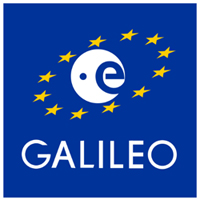
A proposal now before the European Parliament and Council of the European Union would complete the transformation of the European GNSS Supervisory Authority (GSA) from the leading executive agency for the Galileo program into a diminished subsidiary of the European Commission (EC).
A proposal now before the European Parliament and Council of the European Union would complete the transformation of the European GNSS Supervisory Authority (GSA) from the leading executive agency for the Galileo program into a diminished subsidiary of the European Commission (EC).
That pre-eminent role, envisioned under the strategy of a public-private partnership (PPP) abandoned more than two years ago, would have seen the GSA sign and oversee a contract with a private consortium building and operating the Galileo system and its precursor European Geostationary Navigation Overlay Service (EGNOS).
Instead, under the terms of EC Communication 139 released March 24, the GSA would be renamed the GNSS Agency with the EC holding veto power over its administrative board and the agency’s primary mission reduced to market research and promotion of Galileo as well as conducting security audits. On April 1, ownership of the EGNOS infrastructure was transferred to the EC, and a Brussels-based company, the European Satellite Services Provider (ESSP SaS), was entrusted with operation of the system.
Galileo is now being developed as a fully public procurement with a €3.4 billion budget. The European Space Agency (ESA) is acting as the technical design authority and prime contractor.
The EC characterizes its communication as an effort to remove contradictions and ambiguities between the 2004 regulation establishing the GSA and a 2008 regulation outlining the public procurement for Galileo’s deployment. Although the 2008 regulation “implicitly and comprehensively amended the Supervisory Authority’s responsibilities, it had no impact on its internal organisation, and the Commission’s influence in this area continues to be very limited,” says the March 24 communication. “
“In order to ensure that the Authority acts while respecting the ‘Commission’s role as manager of the programmes’ and ‘in accordance with guidelines issued by the Commission,’ as is now provided for by Regulation (EC) No 683/2008,” the communication continues, “it is necessary to make changes to increase the Commission’s influence within the Authority’s internal organisation.”
Although the communication says the reorganized GSA would continue as a “Community Agency” — that is, one under the control of European member states rather than the EC, the EU’s executive branch — the far-reaching changes that it proposes would profoundly alter its political and legal status.
These changes include giving the EC representative on the GSA/GNSS Agency’s administrative board a vote equal to half of that body’s votes, with the 27 representatives of the member states having the other half.
Moreover, the term of the agency’s executive director would be shortened to four years from the current five. Under that provision, the administrative board would have to decide by this July whether to renew the term of Pedro Pedreira, GSA executive director appointed to the post in July 2005, which might be a very uncertain prospect given the communication’s assertion of is limited influence under the present GSA leadership.
The 2004 regulation gave final authority to the GSA’s executive director, “who shall be completely independent in the exercise of his/her duties, without prejudice to the respective competencies of the Commission and the Administrative Board.”
The proposed new regulation replaces that description with the following: “The Agency shall be managed by its Executive Director, who shall carry out his duties under the supervision of the Administrative Board in accordance with the guidelines provided to the Agency by the Commission.”
The communication calls for abolition of the GSA’s Scientific and Technical Committee, which had charged with delivering opinions on technical questions or on proposals involving major changes in the design of the European GNSS system and making recommendations on the modernization of the system. Those responsibilities have been moved — along with many of the GSA’ technical staff — to the EC or to the ESA Evolutions project that is investigating the technical design for a next-generation system with €105 million in funding from ESA members over the next two years.
The EC’s proposal would also replace the GSA’s System Safety and Security Committee with a Security Accreditation Committee for European GNSS Systems, chaired by an EC representative and with members from the EU nations. With oversight from this committee, the GNSS Agency would be charged with setting up a Galileo Security Center that would begin operation in 2012.
The new regulation has had its first reading in the European Parliament and been referred to committee.




